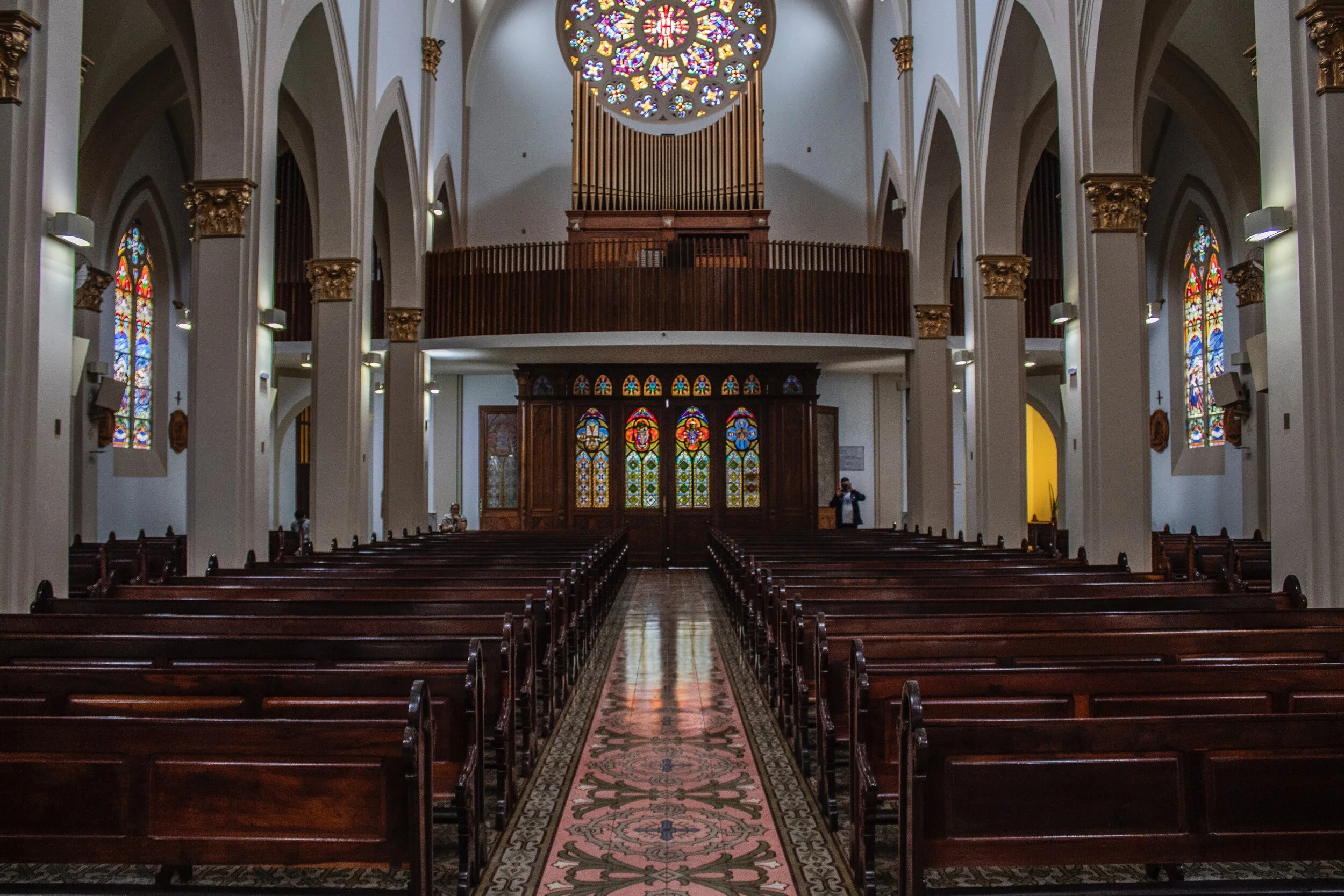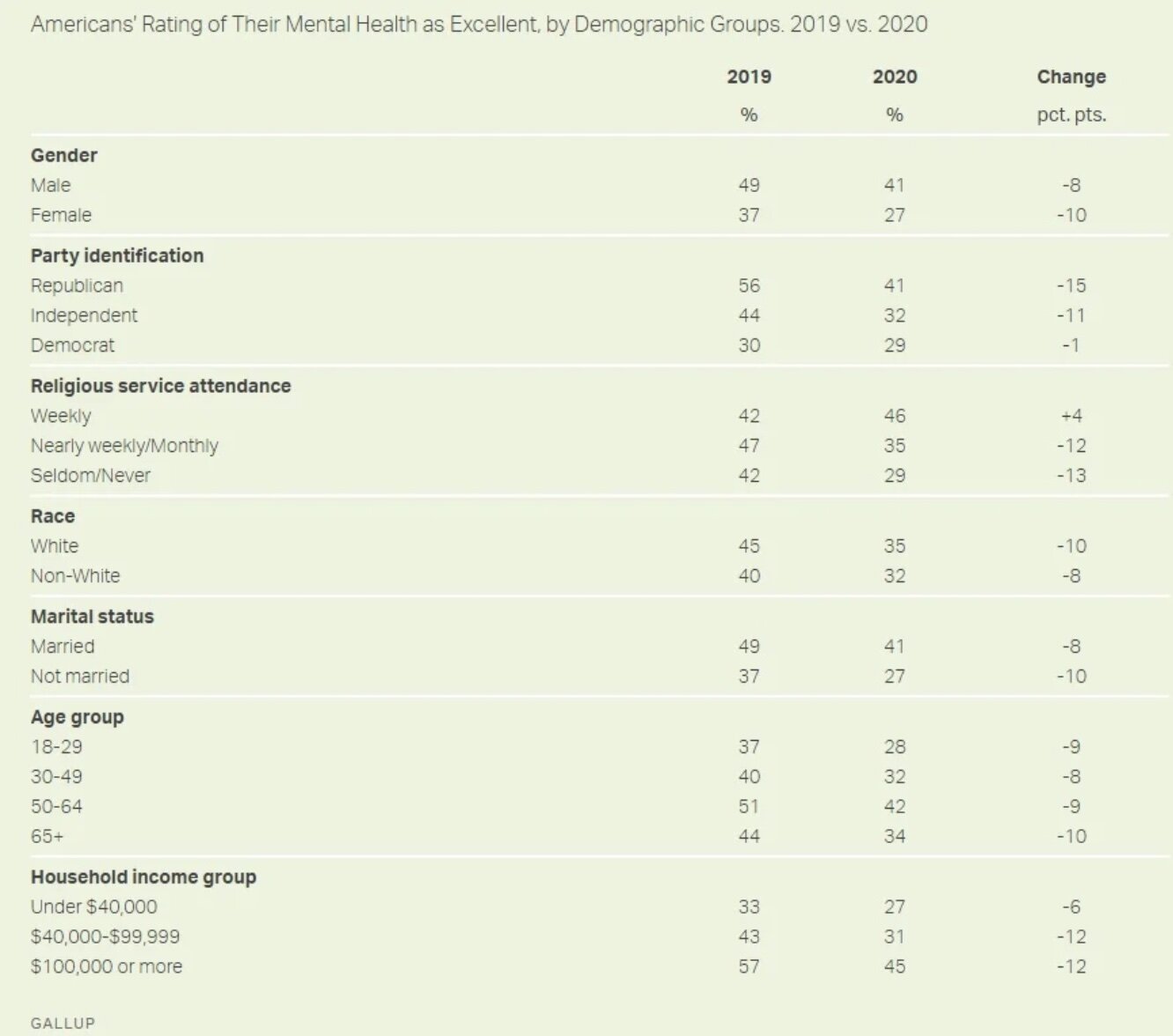Photo by Daniel Borges from Pexels
One of the most puzzling aspects of the government’s responses to COVID-19 has been their failure to recognize the importance of churches in mitigating the mental health impacts of the pandemic. The evidence base for the mental health benefits of worship service attendance is overwhelming. Over 3,000 peer-reviewed studies have been published examining the health benefits of religious or spiritual practices on health, with the vast majority of studies pointing specifically to the mental health benefits of religion.
Dr. Harold Koenig of Duke University authored a comprehensive review of the research linking religious practices with mental and physical health. Some of the mental health benefits of religion or spirituality include:
Lower levels of depression or faster remission from depression.
Fewer suicide attempts and fewer deaths as a result of suicide
Reduced levels of anxiety
Higher frequency of religious service attendance is linked to a lower risk of bipolar disorder.
Lower risk of personality disorders.
An inverse relationship between religious participation and substance use disorders
A survey was released this past week by the Gallup organization dramatizing just how essential churches have been over the last nine months.
For the past twenty years, Gallup has done an annual survey each November of health and healthcare in which they’ve asked Americans to rate their mental or emotional well-being. This year’s survey incorporated a random sampling of 1,018 adults from all 50 states conducted between and November 5th and November 19th. Here are some highlights from the study.
Americans' latest assessment of their mental health is worse than it has been at any point in the last two decades. Seventy-six percent of U.S. adults rate their mental health positively, representing a nine-point decline from 2019.
Each year since 2001, Gallup has asked Americans as part of its November Health and Healthcare survey to say whether their own mental or emotional wellbeing is excellent, good, only fair or poor. The reading for those rating their mental health as excellent or good ranged from 81% to 89% until this year's 76%.
Although the majority of U.S. adults continue to rate their mental health as excellent (34%) or good (42%), and far fewer say it is only fair (18%) or poor (5%), the latest excellent ratings are eight points lower than Gallup has measured in any prior year.
The latest weakening in positive ratings, from a Nov. 5-19 poll, are undoubtedly influenced by the coronavirus pandemic, which continues to profoundly disrupt people's lives, but may also reflect views of the election and the state of race relations, both of which were on Americans' minds this year.
Self-ratings of mental health declined in the past year in every demographic Gallup measured – age, race, gender, income, marital status, political affiliation except for one - weekly church attenders.
In some ways, I can understand the public policy decisions that led some states to order churches closed while keeping liquor stores, strip clubs and marijuana dispensaries open. After all, Christians are enormously underrepresented in psychiatry, and likely underrepresented in public health. Church attendees are probably less likely to be in the meetings where public health responses to COVID are being debated. Many states that have cracked down most harshly against churches during COVID-19 are led by politicians less inclined to view church attendees as key supporters.
What I don’t understand is why so many of our churches have failed to recognize their importance in mitigating the mental health impacts of COVID. Persons with mental health concerns are more likely to turn to clergy for help than a psychiatrist or their primary care physician. Many historically Black churches have been at the forefront in supporting the mental health needs of the communities they serve during COVID. If I were a social media manager at a church, I’d be telling the world about the Gallup study through my Facebook and Twitter posts.
How might churches most effectively support the mental health of their members and attendees during this time? This post considers mental health support during #CovidChristmas, while this one outlines a broader range of support strategies during COVID-19. Here are a few thoughts for churches to consider during the long, dark winter ahead.
Keep the church open for worship services if at all possible. At a time when the only people whose mental health is improving are regular church attendees, worship is more important than ever to those in your church with mental health vulnerabilities.
Make sure individuals and families who have stopped attending church know they haven’t been forgotten. It’s likely given the large increases in anxiety and depression during COVID that many who attended church last year but are now absent from worship services (in-person attendance is down 64% since the beginning of COVID) are hurting. A study published earlier this week reported that people without depression or anxiety have experienced the greatest increase in mental health symptoms during COVID. Consider how the people of the church might mobilize to look after one another.
Don’t miss the opportunity to invite folks to Christmas services who don’t regularly go to church or don’t have a church to attend this year. Given what we learned from the Gallup study, there may be far more people open to the Gospel during this season than in years past. Even with social distancing, many churches will have seats available this Christmas that they haven’t had before. What better time than now to invite someone in need of the hope we have in Christ?
*************************************************************************************************************
Our ministry team very much appreciates your prayers and financial support as 2020 comes to a close. Families of kids with disabilities have had an incredibly difficult time over the last nine months. Churches have struggled with all the changes resulting from social distancing. Our staff has done an incredible job in helping churches help families this year while controlling costs, but we’re currently running about $15,000 behind our expenses from having to cancel our national ministry conference, Inclusion Fusion Live. If you’ve taken care of your responsibilities to your local church, we’d appreciate any donation you might provide. Would you consider starting a Facebook Fundraiser on behalf of our ministry? Online gifts have become an increasingly important source of support.
If you’re unable to give, but have been encouraged or supported by our ministry this year, we’d love to hear from you. The encouragement at this point in the pandemic might be more impactful than the money.
From our Key Ministry team we extend our Best Wishes for a Blessed and Joyous Christmas!






